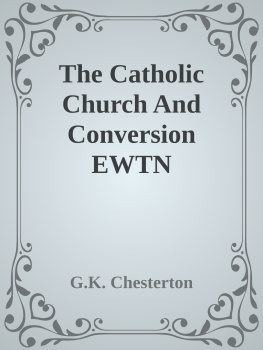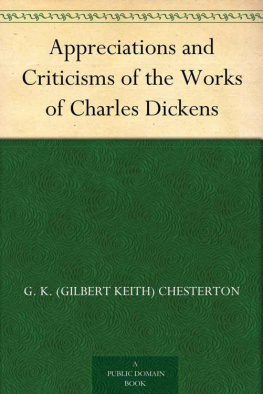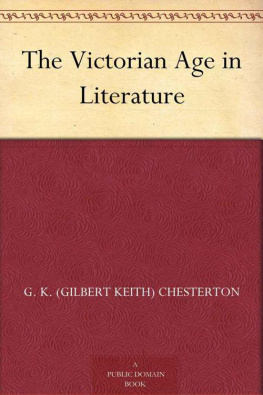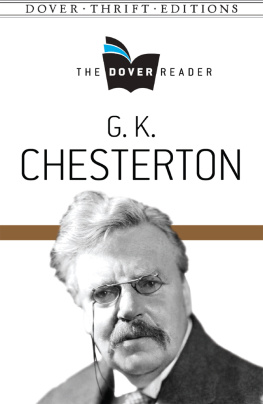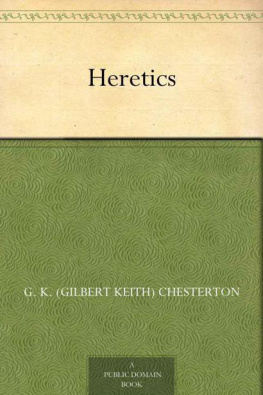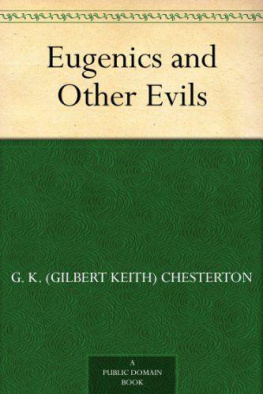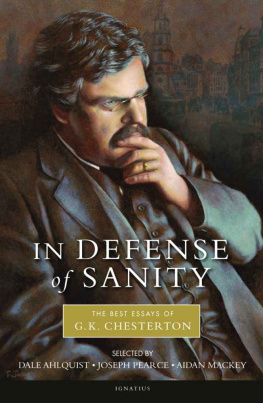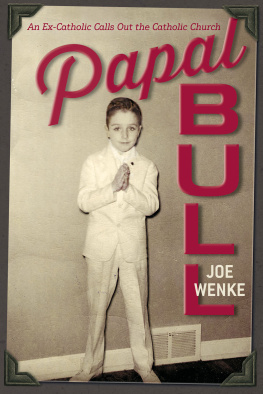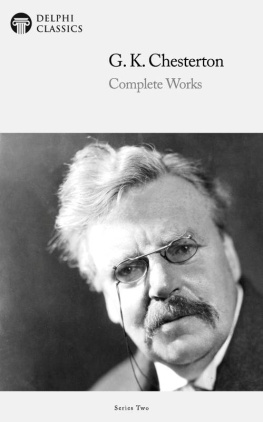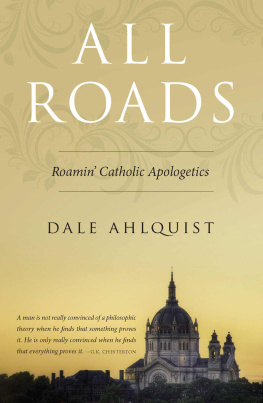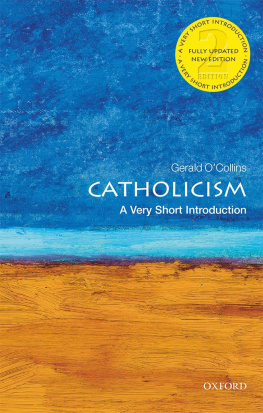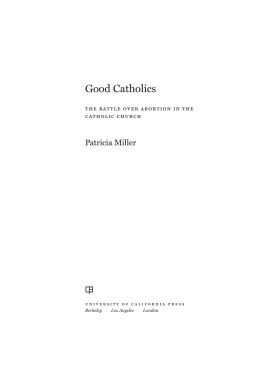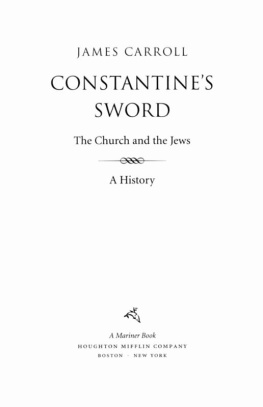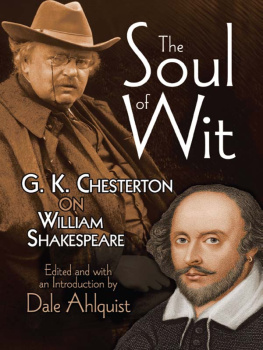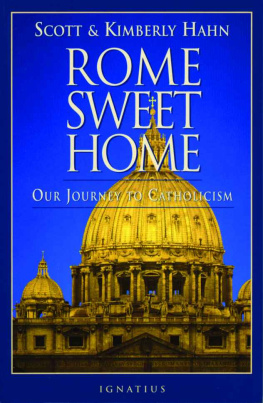G.K. Chesterton - The Catholic Church And Conversion EWTN
Here you can read online G.K. Chesterton - The Catholic Church And Conversion EWTN full text of the book (entire story) in english for free. Download pdf and epub, get meaning, cover and reviews about this ebook. year: 1926, genre: Science. Description of the work, (preface) as well as reviews are available. Best literature library LitArk.com created for fans of good reading and offers a wide selection of genres:
Romance novel
Science fiction
Adventure
Detective
Science
History
Home and family
Prose
Art
Politics
Computer
Non-fiction
Religion
Business
Children
Humor
Choose a favorite category and find really read worthwhile books. Enjoy immersion in the world of imagination, feel the emotions of the characters or learn something new for yourself, make an fascinating discovery.
- Book:The Catholic Church And Conversion EWTN
- Author:
- Genre:
- Year:1926
- Rating:3 / 5
- Favourites:Add to favourites
- Your mark:
- 60
- 1
- 2
- 3
- 4
- 5
The Catholic Church And Conversion EWTN: summary, description and annotation
We offer to read an annotation, description, summary or preface (depends on what the author of the book "The Catholic Church And Conversion EWTN" wrote himself). If you haven't found the necessary information about the book — write in the comments, we will try to find it.
The Catholic Church And Conversion EWTN — read online for free the complete book (whole text) full work
Below is the text of the book, divided by pages. System saving the place of the last page read, allows you to conveniently read the book "The Catholic Church And Conversion EWTN" online for free, without having to search again every time where you left off. Put a bookmark, and you can go to the page where you finished reading at any time.
Font size:
Interval:
Bookmark:
THE CATHOLIC CHURCH AND CONVERSION
BY G. K. CHESTERTON
Nihil Obstat: Arthur J. Scanlan, S.T.D. Censor Librorum.
Imprimatur: Patrick Cardinal Hayes+Archbishop, New York.
New York, September 16, 1926.
Copyright, 1926 by MacMillan Company
EDITOR'S NOTE
It is with diffidence that anyone born into the Faith can approach the tremendous subject of Conversion. Indeed, it is easier for one still quite unacquainted with the Faith to approach that subject than it is for one who has had the advantage of the Faith from childhood. There is at once a sort of impertinence in approaching an experience other than one's own (necessarily more imperfectly grasped), and an ignorance of the matter. Those born into the Faith very often go through an experience of their own parallel to, and in some way resembling, that experience whereby original strangers to the Faith come to see it and to accept it. Those born into the Faith often, I say, go through an experience of scepticism in youth, as the years proceed, and it is still a common phenomenon (though not so often to be observed as it was a lifetime ago) for men of the Catholic culture, acquainted with the Church from childhood, to leave it in early manhood and never to return. But it is nowadays a still more frequent phenomenon--and it is to this that I allude--for those to whom scepticism so strongly appealed in youth to discover, by an experience of men and of reality in all its varied forms, that the transcendental truths they had been taught in childhood have the highest claims upon their matured reason.
This experience of the born Catholic may, I repeat, be called in a certain sense a phenomenon of conversion. But it differs from conversion properly so called, which rather signifies the gradual discovery and acceptance of the Catholic Church by men and women who began life with no conception of its existence: for whom it had been during their formative years no more than a name, perhaps despised, and certainly corresponding to no known reality.
Such men and women converts are perhaps the chief factors in the increasing vigor of the Catholic Church in our time. The admiration which the born Catholic feels for their action is exactly consonant to that which the Church in its earlier days showed to the martyrs. For the word "martyr" means "witness." The phenomenon of conversion apparent in every class, affecting every type of character, is the great modern witness to the truth of the claim of the Faith; to the fact that the Faith is reality, and that in it alone is the repose of reality to be found.
In proportion as men know less and less of the subject, in that proportion do they conceive that the entrants into the City of God are of one type, and in that proportion do they attempt some simple definition of the mind which ultimately accepts Catholicism. They will call it a desire for security; or an attraction of the senses such as is exercised by music or by verse. Or they will ascribe it to that particular sort of weakness (present in many minds) whereby they are easily dominated and changed in mood by the action of another.
A very little experience of typical converts in our time makes nonsense of such theories. Men and women enter by every conceivable gate, after every, conceivable process of slow intellectual examination, of shock, of vision, of moral trial and even of merely intellectual process. They enter through the action of expanded experience. Some obtain this through travel, some through a reading of history beyond their fellows, some through personal accidents of life. And not only are the avenues of approach to the Faith infinite in number (though all converging; as must be so, since truth is one and error infinitely divided), but the individual types in whom the process of conversion may be observed differ in every conceivable fashion. When you have predicated of one what emotion or what reasoning process brought him into the fold, and you attempt to apply your predicate exactly to another, you will find a misfit. The cynic enters, and so does the sentimentalist; and the fool enters and so does the wise man; the perpetual questioner and doubter and the man too easily accepting immediate authority--they each enter after his kind. You come across an entry into the Catholic Church undoubtedly due to the spectacle, admiration and imitation of some great character observed. Next day you come across an entry into the Catholic Church out of complete loneliness, and you are astonished to find the convert still ignorant of the great mass of the Catholic effect on character. And yet again, immediately after, you will find a totally different third type, the man who enters not from loneliness, nor from the effect of another mind, but who comes in out of contempt for the insufficiency or the evil by which he has been surrounded.
The Church is the natural home of the Human Spirit.
The truth is that if you seek for an explanation of the phenomenon of conversion under any system which bases that phenomenon on illusion, you arrive at no answer to your question. If you imagine conversion to proceed from this or that or the other erroneous or particular limited and insufficient cause, you will soon discover it to be inexplicable.
There is only one explanation of the phenomenon--a phenomenon always present, but particularly arresting to the educated man outside the Catholic Church in the English-speaking countries--there is only one explanation which will account for the multiplicity of such entries and for the infinitely varied quality of the minds attracted by the great change; and that explanation is that the Catholic Church is reality. If a distant mountain may be mistaken for a cloud by many, but is recognised for a stable part of the world (its outline fixed and its quality permanent) by every sort of observer, and among these especially by men famous for their interest in the debate, for their acuteness of vision and for their earlier doubts, the overwhelming presumption is that the thing seen is a piece of objective reality. Fifty men on shipboard strain their eyes for land. Five, then ten, then twenty, make the land-fall and recognise it and establish it for their fellows. To the remainder, who see it not or who think it a bank of fog, there is replied the detail of the outline, the character of the points recognised, and that by the most varied and therefore convergent and convincing witnesses--by some who do not desire that land should be there at all, by some who dread its approach, as well as those who are glad to find it, by some who have long most ridiculed the idea that it was land at all--and it is in this convergence of witnesses that we have one out of the innumerable proofs upon which the rational basis of our religion reposes.
--The Editor.
CONTENTS
CHAPTER:
I. INTRODUCTORY: A NEW RELIGION
II. THE OBVIOUS BLUNDERS
III. THE REAL OBSTACLES
IV. THE WORLD INSIDE OUT
V. THE EXCEPTION PROVES THE RULE
VI. A NOTE ON PRESENT PROSPECTS
CHAPTER I: INTRODUCTORY: A NEW RELIGION
The Catholic faith used to be called the Old Religion; but at the present moment it has a recognized place among the New Religions. This has nothing to do with its truth or falsehood; but it is a fact that has a great deal to do with the understanding of the modern world.
It would be very undesirable that modern men should accept Catholicism merely as a novelty; but it is a novelty. It does act upon its existing environment with the peculiar force and freshness of a novelty. Even those who denounce it generally denounce it as a novelty; as an innovation and not merely a survival. They talk of the "advanced" party in the Church of England; they talk of the "aggression" of the Church of Rome. When they talk of an Extremist they are as likely to mean a Ritualist as a Socialist. Given any normal respectable Protestant family, Anglican or Puritan, in England or America, we shall find that Catholicism is actually for practical purposes treated as a new religion, that is, a revolution. It is not a survival. It is not in that sense an antiquity. It does not necessarily owe anything to tradition. In places where tradition can do nothing for it, in places where all the tradition is against it, it is intruding on its own merits; not as a tradition but a truth. The father of some such Anglican or American Puritan family will find, very often, that all his children are breaking away from his own more or less Christian compromise (regarded as normal in the nineteenth century) and going off in various directions after various faiths or fashions which he would call fads. One of his sons will become a Socialist and hang up a portrait of Lenin; one of his daughters will become a Spiritualist and play with a planchette; another daughter will go over to Christian Science and it is quite likely that another son will go over to Rome. The point is, for the moment, that from the point of view of the father, and even in a sense of the family, all these things act after the manner of new religions, of great movements, of enthusiasms that carry young people off their feet and leave older people bewildered or annoyed. Catholicism indeed, even more than the others, is often spoken of as if it were actually one of the wild passions of youth. Optimistic aunts and uncles say that the youth will "get over it," as if it were a childish love affair or that unfortunate business with the barmaid. Darker and sterner aunts and uncles, perhaps at a rather earlier period, used actually to talk about it as an indecent indulgence, as if its literature were literally a sort of pornography. Newman remarks quite naturally, as if there were nothing odd about it at the time, that an undergraduate found with an ascetic manual or a book of monastic meditations was under a sort of cloud or taint, as having been caught with "a bad book" in his possession. He had been wallowing in the sensual pleasure of Nones or inflaming his lusts by contemplating an incorrect number of candles. It is perhaps no longer the custom to regard conversion as a form of dissipation; but it is still common to regard conversion as a form of revolt. And as regards the established convention of much of the modern world, it is a revolt. The worthy merchant of the middle class, the worthy farmer of the Middle West, when he sends his son to college, does now feel a faint alarm lest the boy should fall among thieves, in the sense of Communists; but he has the same sort of fear lest he should fall among Catholics.
Font size:
Interval:
Bookmark:
Similar books «The Catholic Church And Conversion EWTN»
Look at similar books to The Catholic Church And Conversion EWTN. We have selected literature similar in name and meaning in the hope of providing readers with more options to find new, interesting, not yet read works.
Discussion, reviews of the book The Catholic Church And Conversion EWTN and just readers' own opinions. Leave your comments, write what you think about the work, its meaning or the main characters. Specify what exactly you liked and what you didn't like, and why you think so.

